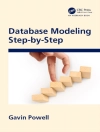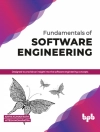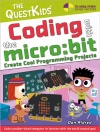Action recognition technology has many real-world applications in human-computer interaction, surveillance, video retrieval, retirement home monitoring, and robotics. The commoditization of depth sensors has also opened up further applications that were not feasible before. This text focuses on feature representation and machine learning algorithms for action recognition from depth sensors. After presenting a comprehensive overview of the state of the art, the authors then provide in-depth descriptions of their recently developed feature representations and machine learning techniques, including lower-level depth and skeleton features, higher-level representations to model the temporal structure and human-object interactions, and feature selection techniques for occlusion handling. This work enables the reader to quickly familiarize themselves with the latest research, and to gain a deeper understanding of recently developed techniques. It will be of great use for both researchers andpractitioners.
สารบัญ
Introduction.- Learning Actionlet Ensemble for 3D Human Action Recognition.- Random Occupancy Patterns.- Conclusion.












